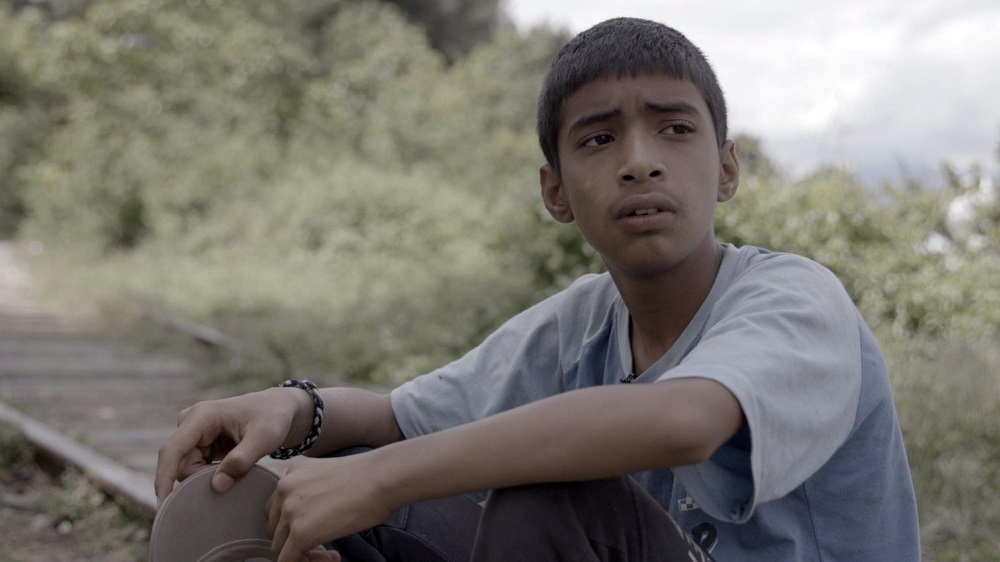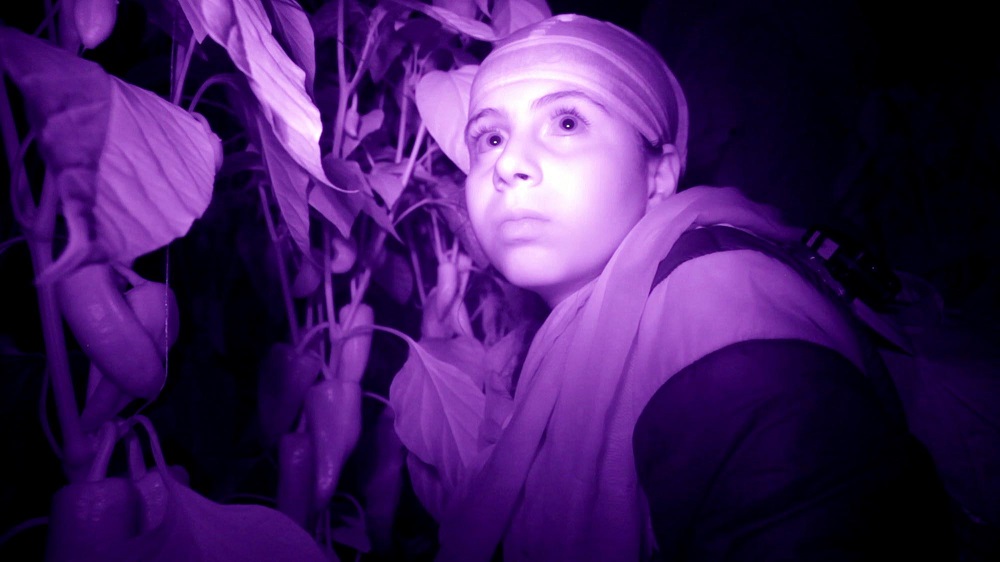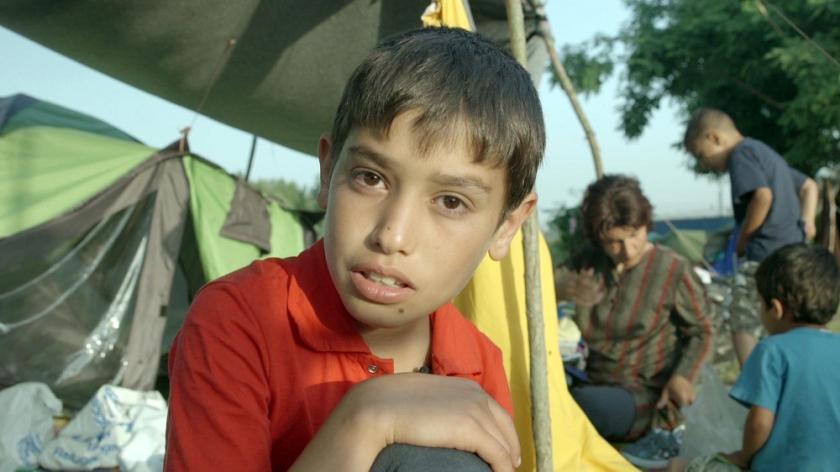In the mindset of Nigel Farage and his biddable followers, the route from Asia into Europe throngs with undesirables. Their threatening faces can be plastered on a vote-winning poster. In this calamitous failure of empathy, young men – hordes of them, to use our former Prime Minister’s lexical choice - are seen to be bent on kettling Western women and hoovering up benefits. Leave.eu’s dehumanising propaganda was a degrading moment of national shame which found its twin in the US’s decision to close its borders to travellers from seven predominantly Muslim countries.
War Child put a young human face on the narrative of the refugee crisis. The documentary followed two children: Emran, a boy of 11 from Kabul, and Rawan, a girl of 12 from Aleppo. A third subject, Hussein (pictured below), also 12, participated more sketchily. We saw him playing tag with two small friends in Greece. He called it “a refugee game”, but this was no game: he had already lost his mother under fire from police on the Turkey/Iran border and he later went missing en route.
 The film began in Idomeni, a camp in mainland Greece near the border with Macedonia which the authorities were planning to close, creating an atmosphere of fear and simmering tension. The three refugees' journey had already been arduous, but this was the European leg, where frontiers are heavily policed and smugglers were queueing up to milk them dry. Their goal was to reach the promised land: Germany.
The film began in Idomeni, a camp in mainland Greece near the border with Macedonia which the authorities were planning to close, creating an atmosphere of fear and simmering tension. The three refugees' journey had already been arduous, but this was the European leg, where frontiers are heavily policed and smugglers were queueing up to milk them dry. Their goal was to reach the promised land: Germany.
Whether by luck or some form of natural selection, director Jamie Roberts alighted on two children of huge charm, courage and emotional resourcefulness and, in the case of Emran, remarkable linguistic facility. “I like the Greek language, it’s so cool,” he said in English when we first met him. He also supplied the voiceover. Travelling with an uncle and his family, he had been sent on his way by his father because the Taliban had started shooting children on their way to school. His irrepressible optimism cracked only once when he admitted to being scared and greatly missing his parents.
Meanwhile Rawan’s family – two parents, many children - had left behind a three-storey home. “We lived like Europeans,” said her father, who abandoned a business buying and selling cars. His image of Europe took a battering as they were kidnapped and embezzled by smugglers, had guns pointed at them, were left for days without food or water. These opportunists were never seen on camera but Rawan painted a vivid portrait in words: “The smugglers smelled very bad and were ugly and their clothes were very dirty.” She had a very grown-up understanding of the reality for Syrians and Afghans making their way across the map of Europe: “We’re now refugees. No one likes us. No one is loyal, everyone lies.” (Pictured below: Rawan hiding in a greenhouse in Macedonia)
 While this is Europe’s worst refugee crisis since the Second World War, the difference is in technology. Mobile phones enabled Emran to communicate with his father, and Rawan’s father to get more funds sent through from relatives; both filmed horrific footage which was used in the documentary. Without mobiles, keeping track of the film’s subjects would have been impossible. And then there was the beautiful and uplifting moment on the long train ride out of Hungary, when Rawan’s family were fraught with anxiety that they were be caught and deported. Half of them hid in the loo as the ticket inspector passed. Then Rawan checked her GPS which revealed that they had arrived in Germany. Her mother’s smile of relief was nothing short of primordial. Emran cleared every hurdle placed in his way too, and Hussein turned up to be reunited with his brother for the first time in two years.
While this is Europe’s worst refugee crisis since the Second World War, the difference is in technology. Mobile phones enabled Emran to communicate with his father, and Rawan’s father to get more funds sent through from relatives; both filmed horrific footage which was used in the documentary. Without mobiles, keeping track of the film’s subjects would have been impossible. And then there was the beautiful and uplifting moment on the long train ride out of Hungary, when Rawan’s family were fraught with anxiety that they were be caught and deported. Half of them hid in the loo as the ticket inspector passed. Then Rawan checked her GPS which revealed that they had arrived in Germany. Her mother’s smile of relief was nothing short of primordial. Emran cleared every hurdle placed in his way too, and Hussein turned up to be reunited with his brother for the first time in two years.
For the viewer, the unspoken subtext of War Child was not "What would you do?" but "How would your child fare?" It's an unimaginable question, and we weren't even shown the worst of it: of the 100,000 unaccompanied minors who have made it to Europe in the last two years, 10,000 are thought to have gone missing.
There is a theory that refugees who have the willpower and phlegm to survive such an epic trek are likely to be net contributors to their host society if that society will only give them the tools. In the case of Emran and Rawan, both of whom have had wisdom thrust upon them, it seems impossible to imagine any other outcome. After one day at school Emran, with a cool new haircut, was as enthusiastic about the language he began learning that morning as he had been about Greek. “I can speak a little bit of German and I have friends. So it’s OK now.” No one attempted to shoot him on his way there.















Add comment